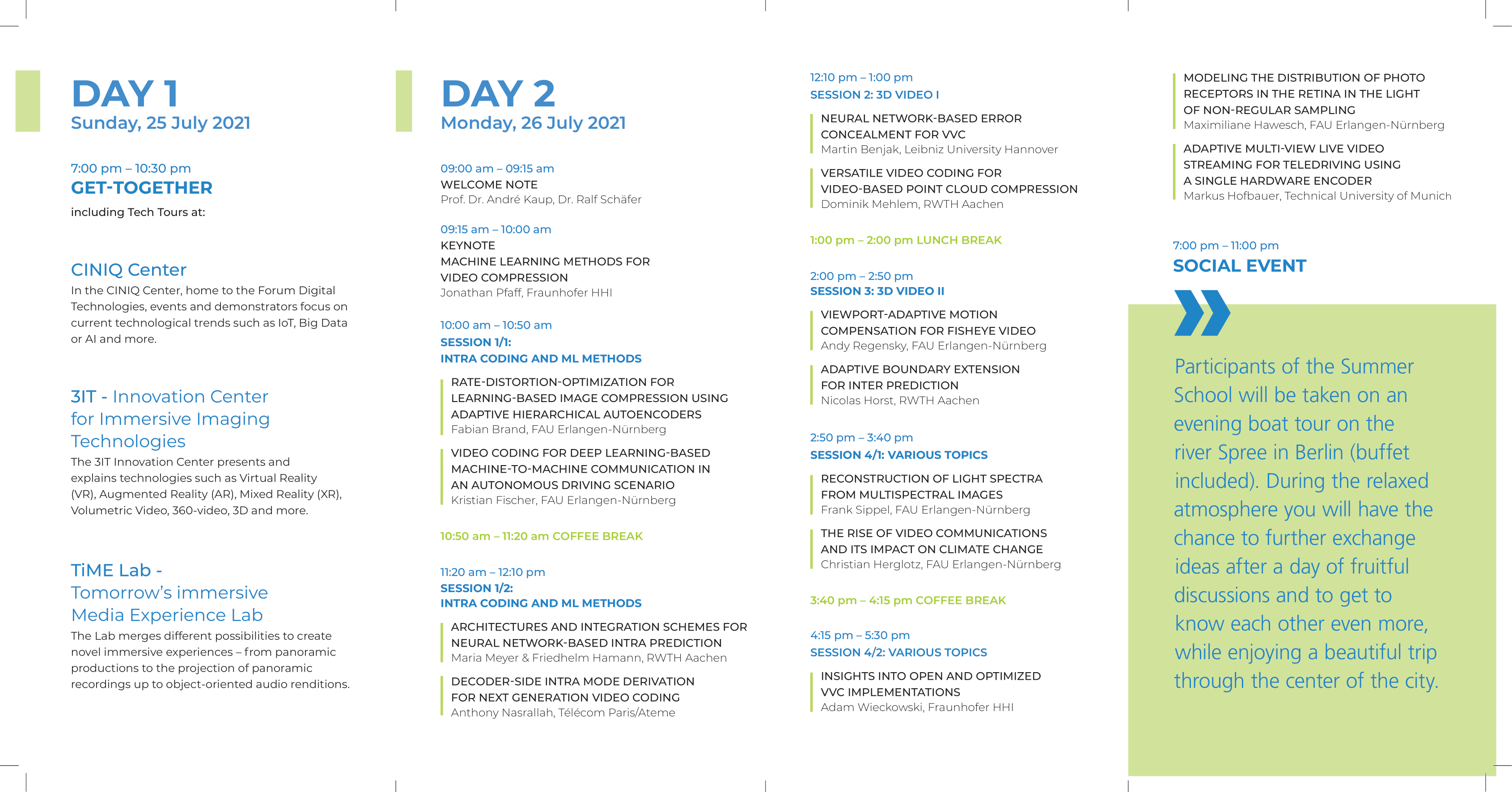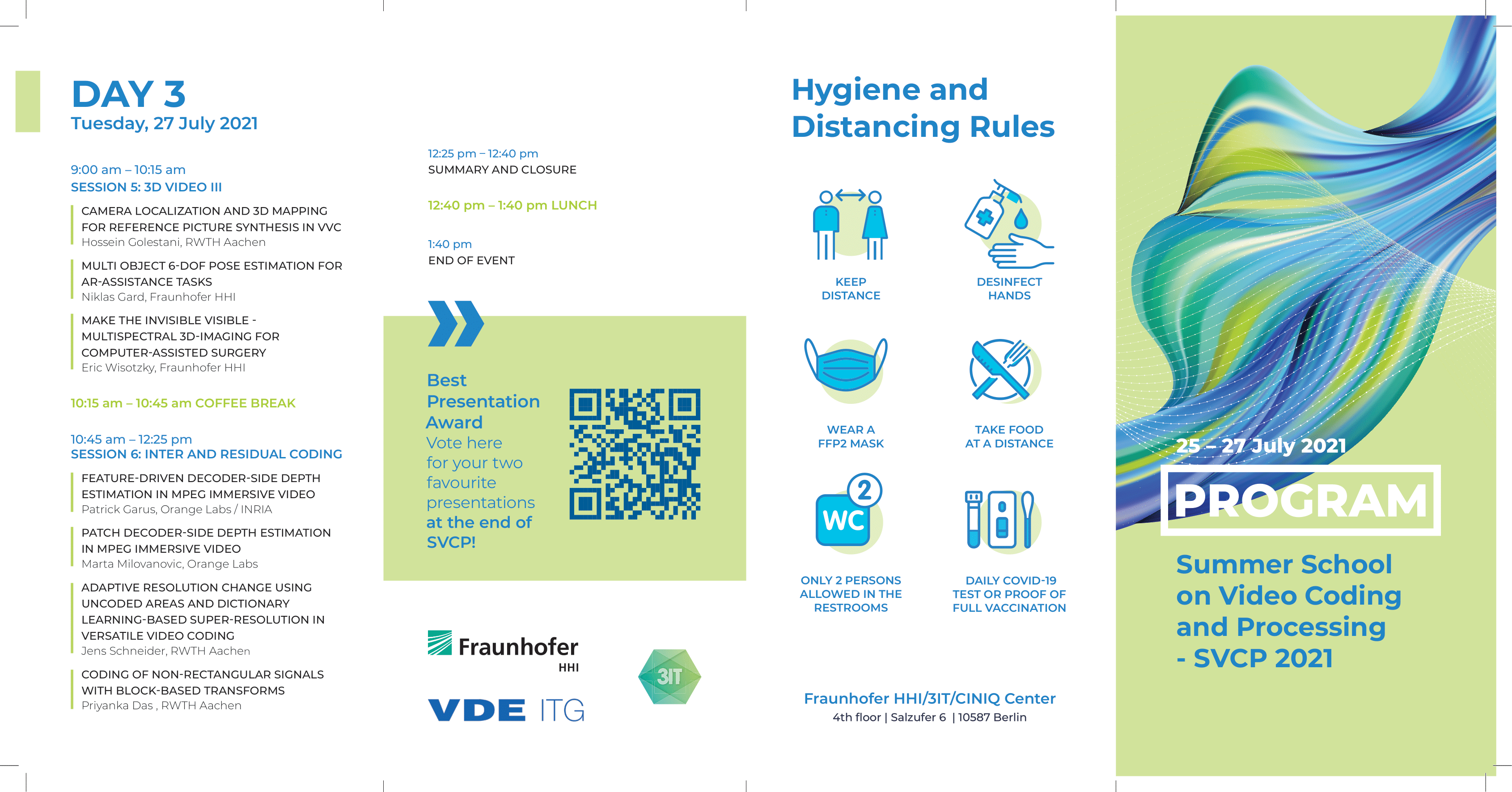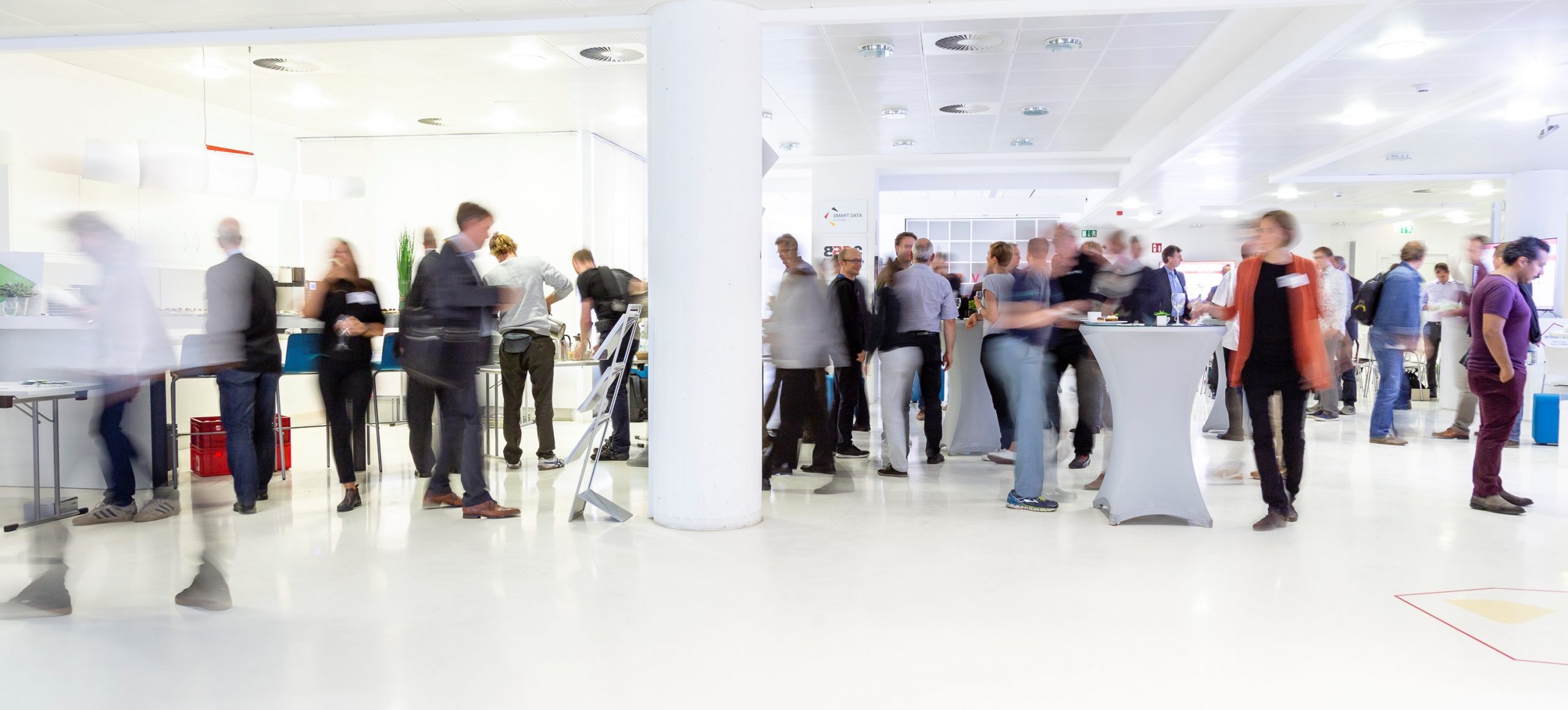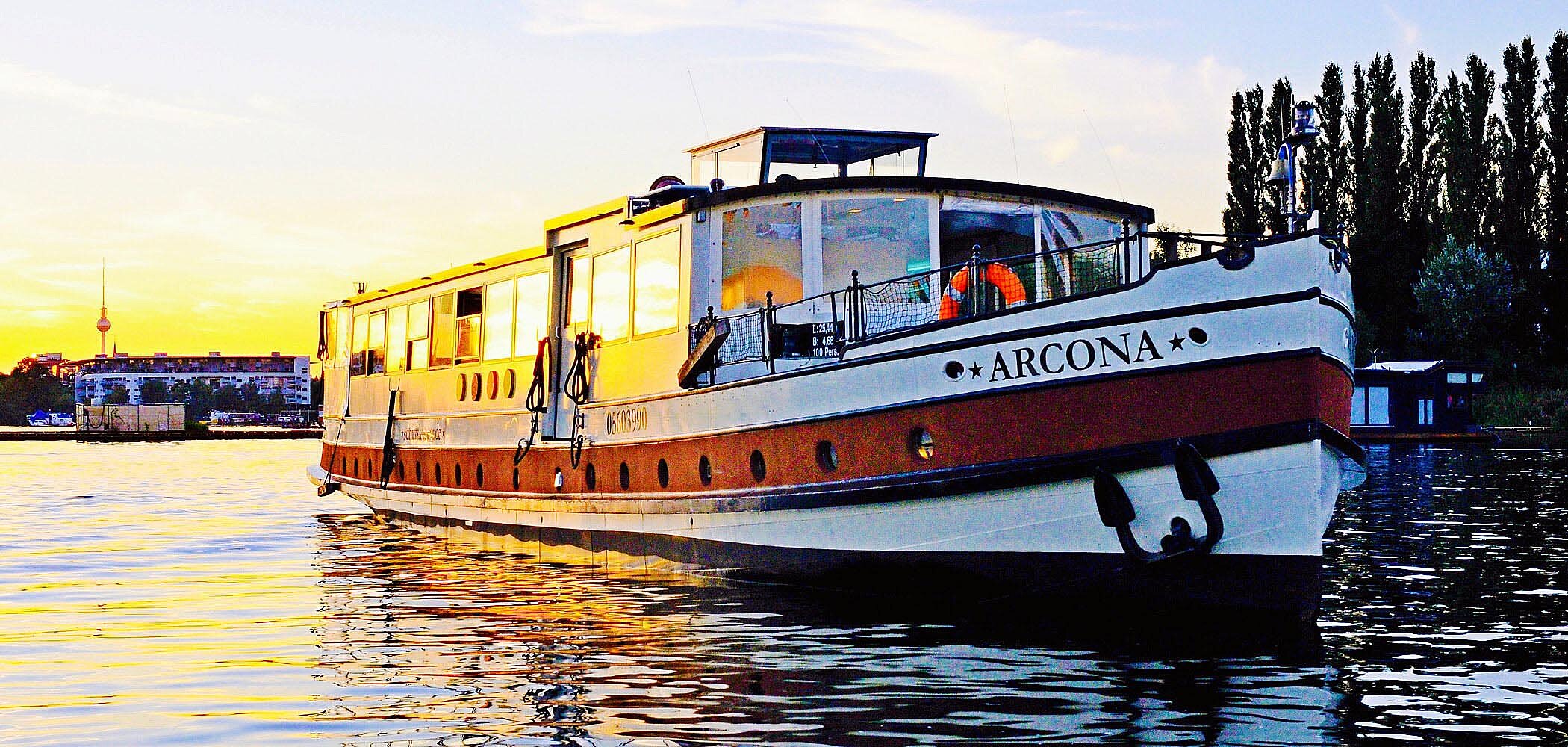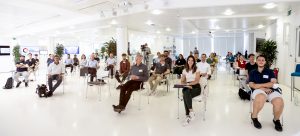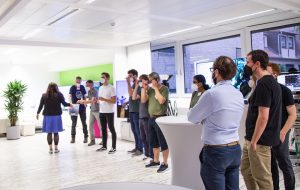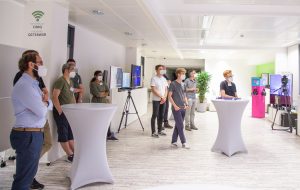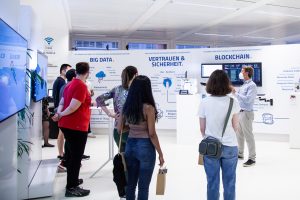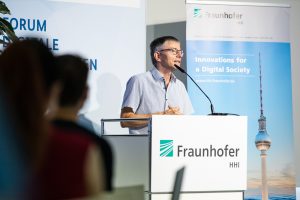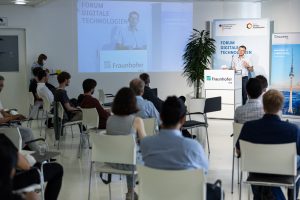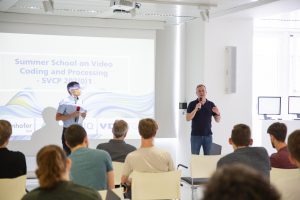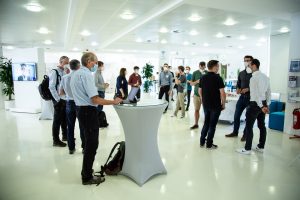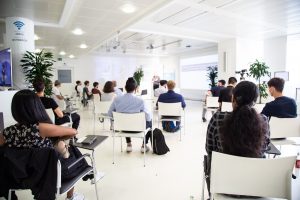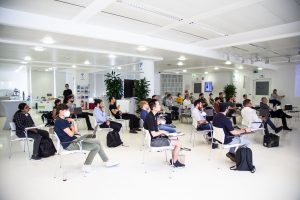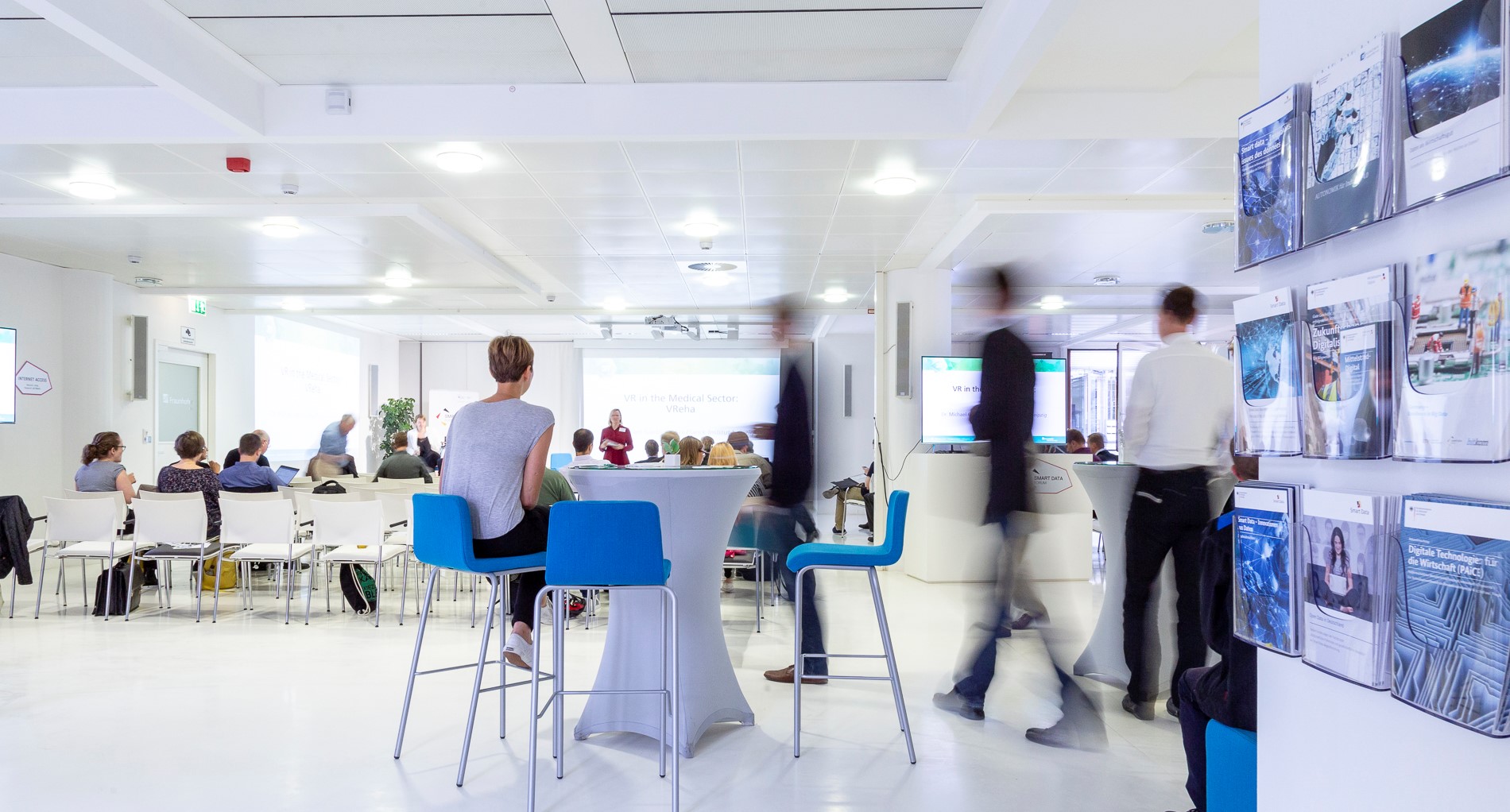
The 6th ITG/VDE Graduate Summer School on Video Compression and Processing aimed at providing a forum for informal knowledge exchange and discussion of innovative research ideas among doctoral students working in the field of image and video communication and image signal processing. The atmosphere of the summer school was intended to be very informal and less restrictive than a typical workshop or conference, thus stimulating discussions and inspiring joint research among the participating PhD students. Topics of interest included but were not limited to:
- Techniques for next generation image and video coding
- Machine learning for image, video and data processing and compression
- Compression algorithms for 2D, 3D, 360-degree and multi-view video and images
- Coding and processing of multispectral data
- Image and video signal analysis
- Quality assessment/Quality of experience
- Virtual, mixed and augmented reality
- Technology for video transmission and networked systems
- Architecture and implementation aspects
Contributions focused on novel research aspects, but did not have to provide unpublished material. Presentations, posters, or demos rather gave an overview of the participant’s research fields including challenges, open topics, and problems in current research. The aim was to bring together young researchers with similar topics and provide a basis for fruitful scientific discussions, motivating future cooperation.
Invited Lecture
Lecturer:
Jonathan Pfaff
Title:
Machine learning methods for video compression
Abstract:
The basic principle of video compression is to exploit redundancies in the underlying signals. On the other hand, powerful methods in the field of machine learning have been developed to discover hidden patterns in large sets of data. Therefore, a central direction of current research in video compression is to investigate if and how machine-learning methods can be used to improve state of the art video coding technologies. In this lecture, we will describe some recent approaches to this problem in more detail. First, we plan to give an overview on some “end-to-end” compression systems, which aim to completely replace block-based codecs by trained convolutional neural networks. Then, we want to describe some research works that aim to improve only specific building blocks of modern hybrid video codecs like in-loop filtering or prediction.
How to participate
- The summer school was open for PhD and advanced master students, for post docs, and academic advisors working in the research areas listed. The working language at the summer school was English. Participants were encouraged to present and discuss their research in oral and poster presentations.
- To apply for a presentation, participants needed to submit a title, a short abstract (approximately 200 words), and preference oral/poster. Upon acceptance, participants needed to register for the Summer School.
- Participants without a presentation were welcome and requested to register.
- Submission/Registration/Payment and Important Dates provided details in the sections below.
Important dates
- 25-27 July 2021 Summer School took place
Awards
Best Presentation Award
Directly after the last presentation at the Summer School the participants voted democratically for their favourite presentation. Find more information on the two winners in the section below.
Joint Research Incubator Award
Up to two awards will be given, each one comes with a certificate and a prize money of 1.000 Euro. Find all details on how to participate in the section below!
Scientific Chairs
- André Kaup, Friedrich-Alexander-University Erlangen-Nürnberg, Germany
- Jens-Rainer Ohm, RWTH Aachen University, Germany
- Dietmar Saupe, University of Konstanz, Germany
- Ralf Schäfer, Fraunhofer Heinrich Hertz Institute – Berlin, Germany
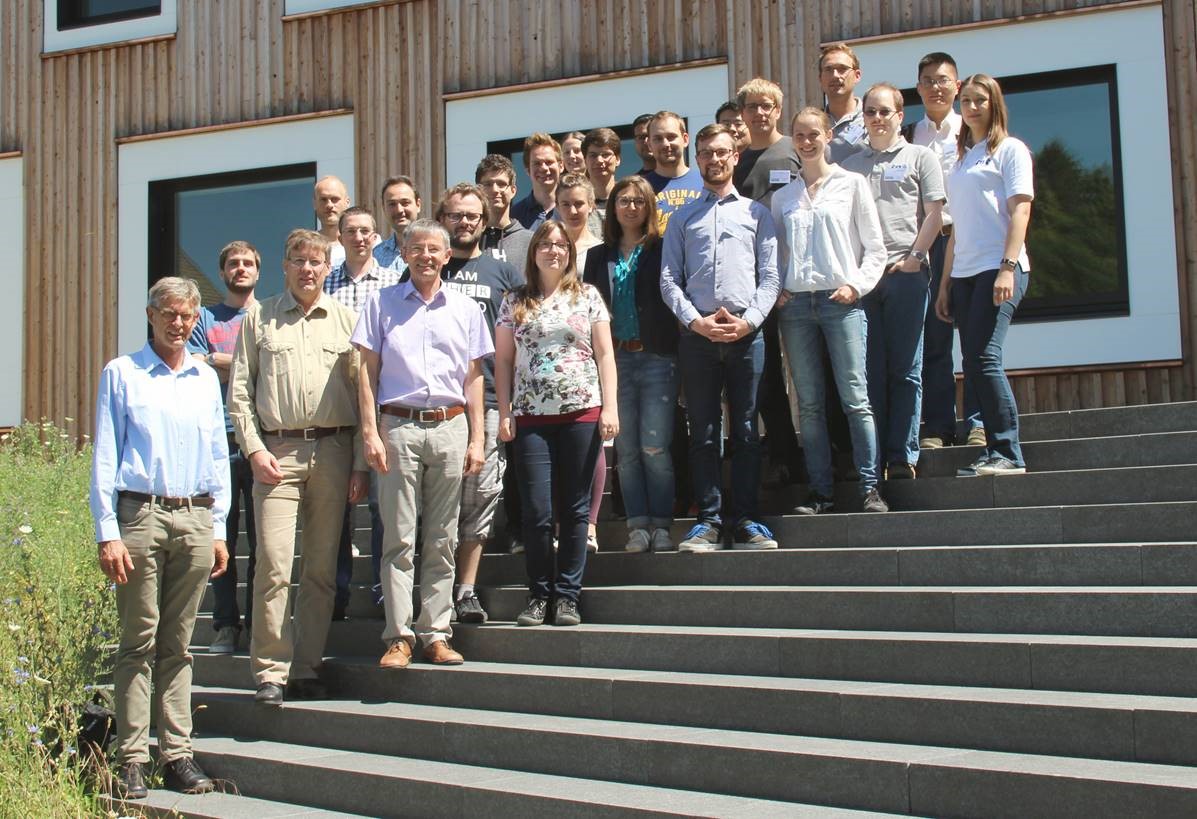
Date:
25-27 July 2021 (instead of October 18-20 2020)
Location:
Salzufer 6
Entrance Otto-Dibelius-Strasse
10587 Berlin
Germany
The summer school took place at the Fraunhofer Heinrich Hertz Institute`s 3IT and CINIQ Center. The two centers stand for technology and information transfer in the triangle of innovation, science and economy in Berlin. The facilities offer a unique and stimulating environment for scientific discussions and joint research.
The CINIQ Center is a networking platform and exhibition space for selected research projects and innovations in the field of digital technologies from Germany and promotes exchange and knowledge transfer both nationally and internationally. Currently, it serves as the home of the Forum Digital Technologies which is funded by the German Federal Ministry for Economic Affairs and Energy (BMWi).
The 3IT – Innovation Center for Immersive Imaging Technologies is an event venue and showroom but also a marketing platform and networking nexus. On a regular basis experts come together and exchange their know-how, test and present their innovations, and develop business models and marketing strategies.
Find all presentations here!
Bakhshi-Golestani, Hossein (RWTH Aachen)
Camera localization and 3D Mapping for Reference Picture Synthesis in VVC
Benjak, Martin (Leibniz Universität Hannover)
Neural Network-Based Error Concealment for VVC
Brand, Fabian (Friedrich-Alexander Universität Erlangen FAU)
Rate-Distortion-Optimization for Learning-Based Image Compression Using Adaptive Hierarchical Autoencoders
Das, Priyanka (RWTH Aachen)
Coding of Non-Rectangular Signals with Block-Based Transforms
Fischer, Kristian (Friedrich-Alexander Universität Erlangen FAU)
Video Coding for Deep Learning-Based Machine-to-Machine Communication in an Autonomous Driving Scenario
Gard, Niklas (Fraunhofer HHI)
Multi Object 6-DOF Pose Estimation for AR-Assistance Tasks
Garus, Patrick (Orange Labs / INRIA)
Feature-Driven Decoder-Side Depth Estimation in MPEG Immersive Video
Hamann, Friedhelm & Meyer, Maria (RWTH Aachen )
Architectures and Integration Schemes for Neural Network-Based Intra Prediction
Hawesch Gruber, Maximiliane (Friedrich-Alexander Universität Erlangen FAU)
Modeling the Distribution of Photo Receptors in the Retina in the Light of Non-Regular Sampling
Herglotz, Christian (Friedrich-Alexander Universität Erlangen FAU)
The Rise of Video Communications and its Impact on Climate Change
Hofbauer, Markus (Technical University of Munich)
Adaptive Multi-View Live Video Streaming for Teledriving Using a Single Hardware Encoder
Horst, Nicolas (RWTH Aachen)
Adaptive Boundary Extension for Inter Prediction
Mehlem, Dominik (RWTH Aachen)
Versatile Video Coding for Video-Based Point Cloud Compression
Milovanovic, Marta (Orange Labs / INRIA)
Patch Decoder-Side Depth Estimation in MPEG Immersive Video
Nasrallah, Anthony (Telecom Paris / ATEME)
Decoder-Side Intra Mode Derivation for Next Generation Video Coding
Pfaff, Jonathan (Fraunhofer HHI)
Machine Learning Methods for Video Compression
Schneider, Jens (RWTH Aachen)
Adaptive Resolution Change Using Uncoded Areas and Dictionary Learning-Based Super-Resolution in Versatile Video Coding
Sippel, Frank (Friedrich-Alexander Universität Erlangen FAU)
Reconstruction of Light Spectra from Multispectral Images
Wieckowski, Adam (Fraunhofer HHI)
Insights into Open and Optimized VVC Implementations
Wisotzky, Eric (Fraunhofer HHI)
Make the Invisible Visible – Multispectral 3D-Imaging for Computer-Assisted Surgery
Lab-Tours & Get-Together
Spree Boat Tour
Participants of the Summer School were taken on an evening boat tour on the river Spree in Berlin, where they were treated to a delicious barbecue. The relaxed atmosphere gave them the chance to further exchange ideas after a day of fruitful discussions and to get to know each other even more, while enjoying a beautiful trip through the center of the city.
We congratulate the two winners of the Best Presentation Award!
Dominik Mehlem (RWTH Aachen) – Versatile Video Coding for Video-Based Point Cloud Compression
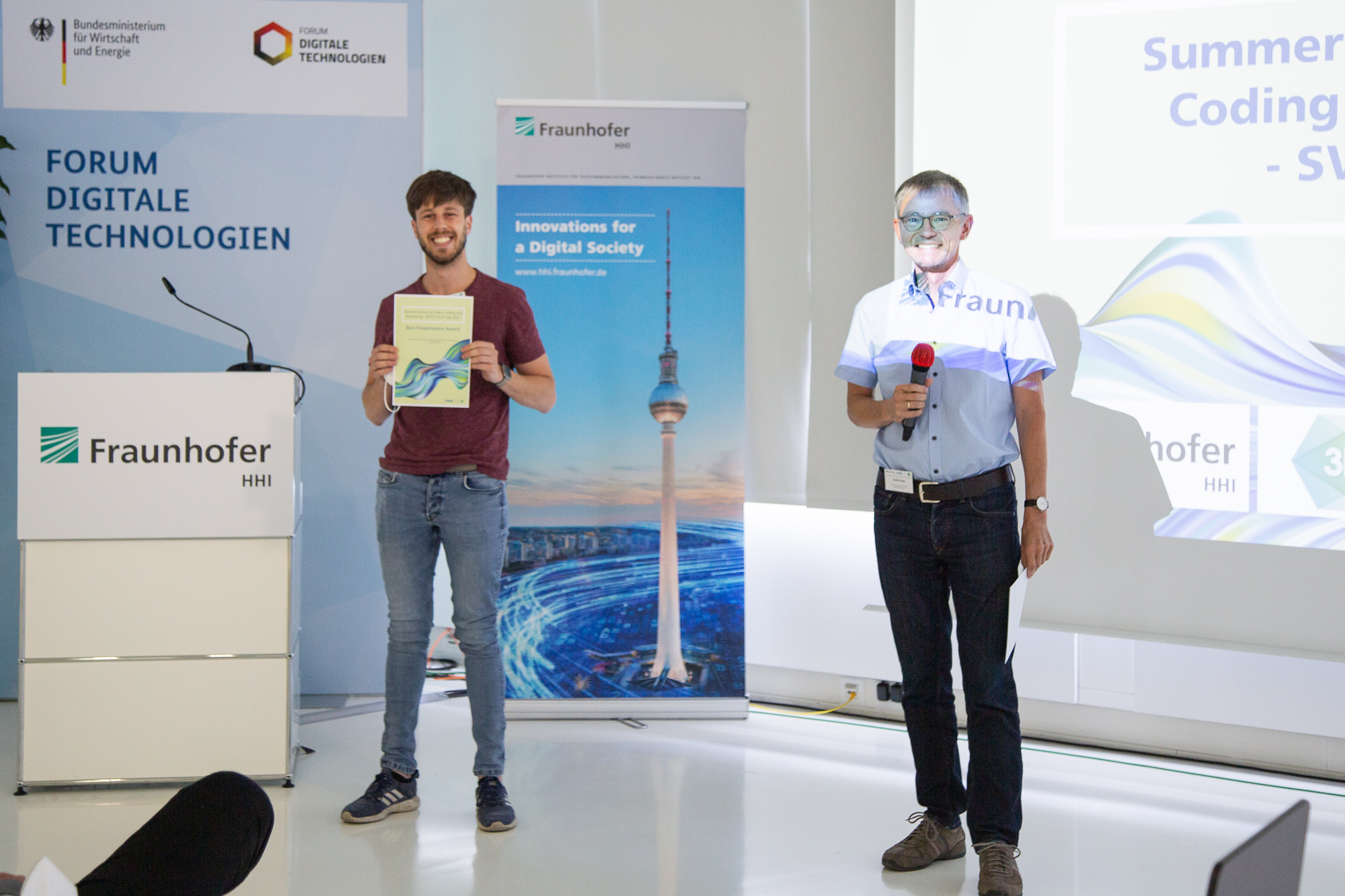
Jens Schneider (RWTH Aachen) – Adaptive Resolution Change Using Uncoded Areas and Dictionary Learning-Based Super-Resolution in Versatile Video Coding
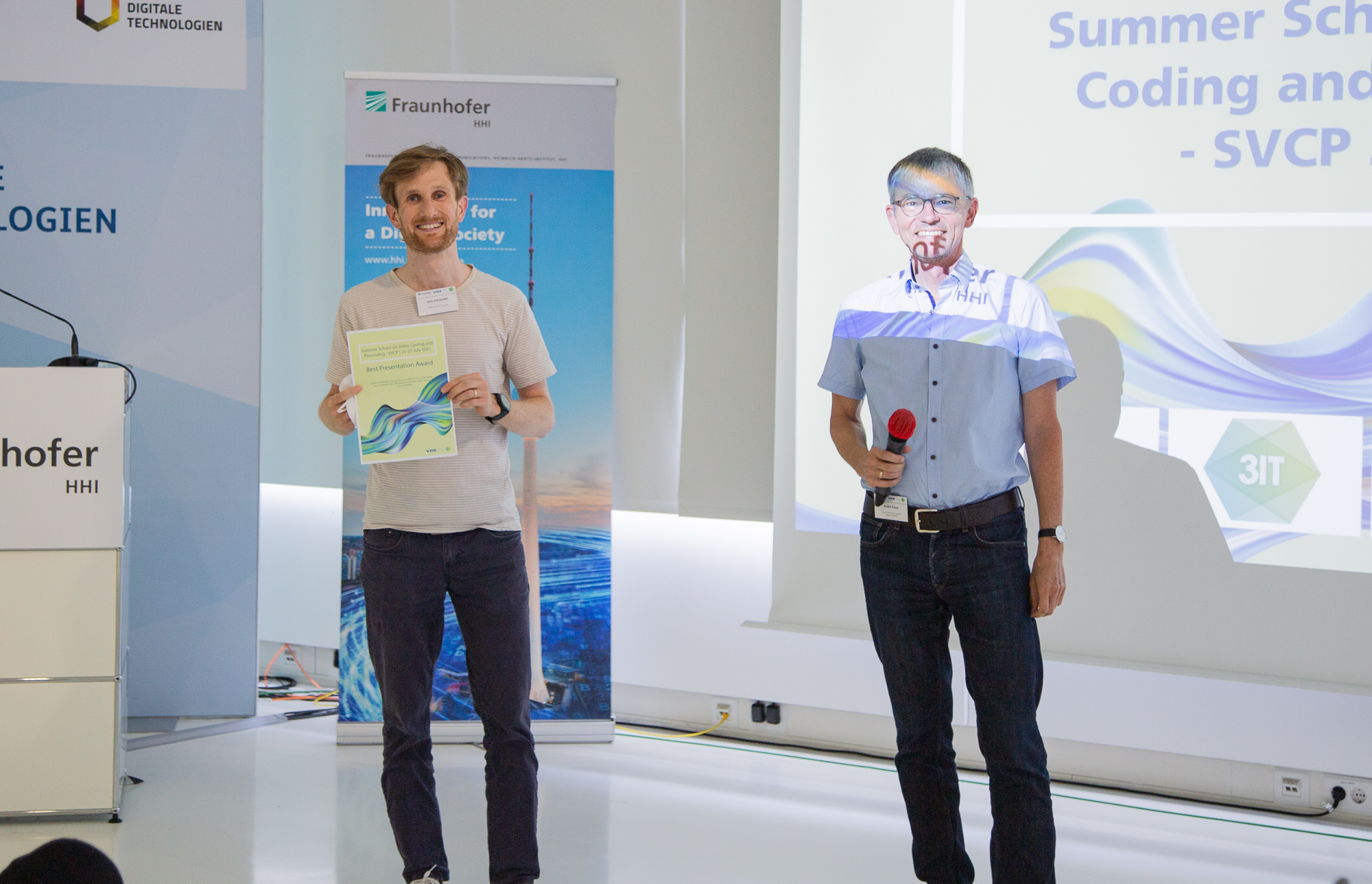
Due to a generous sponsorship we have the possibility to offer Joint Research Incubator Awards for SVCP participants. For this you need to team up with an SVCP colleague from another institution than your own and develop a new idea or technology in the area of video compression and processing.
Prepare a research paper together with your colleague(s) about the outcome of your joint research and submit this to a conference or journal. If this paper gets accepted for a conference or preliminarily accepted subject to a revision for a journal by the date of the next SVCP in July 2022, you may apply for the award.
For application please send your paper including acceptance notice to Prof. André Kaup, spokesperson of the ITG Technical Committee MT 2, before next SVCP in July 2022. Decision for the award is based on novelty, clarity, and team involvement and will be taken by the ITG Technical Committee MT 2. Up to two awards will be given, each one comes with a certificate and a prize money of 1.000 Euro.
- Ralf Schäfer, Fraunhofer Heinrich Hertz Institute, Germany
- Maria Ott, Fraunhofer Heinrich Hertz Institute, Germany
- Jennifer Chyla, Fraunhofer Heinrich Hertz Institute, Germany
- Marc Reznicek, Fraunhofer Heinrich Hertz Institute, Germany
- Gabriela Thiele, Fraunhofer Heinrich Hertz Institute, Germany

